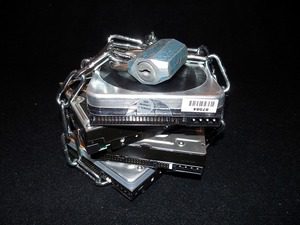 It is commonplace today to hear businesses voicing concerns about using cloud based services as though the cloud is much less secure than any system you might purchase or devise on site. In reality it is not the cloud or any other platform that determines how much of a security risk you are taking with your data.
It is commonplace today to hear businesses voicing concerns about using cloud based services as though the cloud is much less secure than any system you might purchase or devise on site. In reality it is not the cloud or any other platform that determines how much of a security risk you are taking with your data.
The security of your data quite simply starts and ends with you. The commitment you make as the owner of a business to plan and do research to discover the best safety system fit for your company is easily the most important piece of the security risk puzzle. Once you have determined the most appropriate security configuration for your needs the next step is to put protocols in place from the top management on down to ensure the security systems as designed are working consistently and properly.
Explore The Layers Of Security Your Cloud Provider Can Offer
Business owners need to understand that the data you store on a cloud server is owned by you and has not been given up to the cloud provider. In fact, all cloud service providers offer various levels of security to their customers, and it is up to you to thoroughly discuss this with your cloud provider. If a data breach is a fear you have, be sure to make the security discussion a priority when negotiating a contract with your cloud provider rather than having it be an afterthought or the reason you avoid the cloud altogether.
Establish Protocols And Follow Them
Invest time and resources in making your cloud based data secure at the front end so that you can then move your sight back to the business of making your company successful. Discuss encryption options with potential cloud providers, both as you send data to cloud storage and while it is actually stored. Be sure to put the software and procedures in place on your end and make sure you staff is also following them.
Find out about the various ways data stored on the cloud can be viewed, edited, deleted and retained. Make sure your staff is clear on these protocols as the cloud provider will only be able to keep your data as secure as your actions permit. Passwords continue to be a key to security so make sure you and your staff are creating robust passwords and changing them frequently.
Back Up Data
Be sure that your cloud service offers a back-up option and make use of it. Sometimes it may make sense to back up critical data on an additional cloud server run by another provider.
It Is Not Where But How Your Data Are Stored That Is Crucial
Be clear in your own mind that the physical location of the servers where your data is stored is much less important than the safety and security protocols you and your server provider has put in place. On site data is just as vulnerable to an attack as a cloud server and maybe more so.